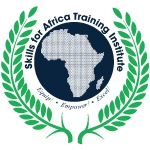|
|
Training Course On Internal Auditing And Control Best Practices
USD 1,500 |
Venue: Nairobi
Internal Audit & Control has become a vital component for any organization, it is an independent objective assurance and consulting activity designed to add value and improve an organization’s operations. This applies to both the corporate sector and the public sector. Internal audits provide a number of essential services to company management. These include detecting and preventing fraud, testing internal control, and monitoring compliance with company policy and government regulation.
‘Internal Audit & Control Best Practices’ is a highly interactive training course, it helps participants to acquire the knowledge to understand the Internal Controls environment and the roles of the respective stakeholders in monitoring, evaluating and the implementation of internal controls best practices. By applying this knowledge, participants will develop the skill to perform an Internal Controls risk assessment to support the organization’s strategic objectives, improve its sustainability and leverage its ability to face future challenges
COURSE OBJECTIVES
At the end of the course, the participants will be able to:
- Reinforce key elements related to internal audit, its scope and function within the organization
- Understand the relationship between internal stakeholders and types of engagements with them.
- Distinguish the types of internal audit assignments related to operational, compliance or financial internal audit
- Develop engagement process based on considerations, objectives, scope and risk-based internal audit engagements
- Comprehending the organizational governance including principles, various frameworks, codes and legislation.
- Perceive ways to identify, analyze and manage the risks in your business.
- Identification of reportable items, report formulation, and methods of communication.
- Understand the organizational ethics, fraud, and role of internal auditing
- Recognize internal auditing’s role regarding, fraud prevention, detection, and investigation
DURATION
1 Week
WHO SHOULD ATTEND
The Internal Audit & Control Best Practices training course is designed for:
- Internal auditors who wish to understand their role in the audit process and update the knowledge
- Accountants who wish to understand the scope of the audit and their role
- Financial executives who wish to gain a better understanding of the regulatory audit environment
- Supervisors and managers who are interested in updating, upgrading, and refreshing their knowledge in internal audit.
- Personnel within the public sector who need a better understanding of internal audit role
- Any other professional involved in the preparation for the audit process or the conducting of audit procedures
COURSE CONTENT
Module 1 -Introduction to Internal Auditing
· Key Topics:
-
- Definition of internal auditing
- Overview of internal auditor’s roles and responsibilities
- Overview of the relationships of the internal auditor:
- Board of directors
- Senior management
- Audit committee
- Types of engagements:
- Assurance
- Consulting
- Types of audits:
- Operational
- Financial
- Compliance
Module 2 - Engagement Process
· Key Topics:
-
- Engagement plan (considerations, objectives, scope, risk-based internal audit engagements)
- Engagement resource allocation
- Developing the work program
- Various tools and techniques
- Performing the engagement
- Communicating the results
- Evaluating the audit performed
Module 3 - Organizational Governance and Risk Management
· Key Topics:
-
- Organizational governance
- Corporate governance principles
- Various frameworks, codes and legislation
- The role of the audit committee and internal auditing
- Understanding risks and controls
- ERM, methods, processes, and structures
- The relationship between internal audit and risk management
- Various risk assessment processes (models and differences)
- Overall risk management methodologies (risk management framework)
- Control frameworks and procedures
- Organizational governance
Module 4 - Reporting
· Key Topics:
-
- Identifying and communicating reportable items
- Communicating results:
- Criteria (methods, add value, attributes of effective reporting, key summary reporting)
- Quality
- Disclosing noncompliance issues
- Use of the term “conducted in accordance with…”
- Obtaining sufficient evidence to form an opinion
- Follow-up
Module 5 -Ethics and Fraud Overview
· Key Topics:
-
- General understanding of organizational ethics
- The role of internal auditing
- General understanding of internal auditing’s role regarding:
- fraud prevention,
- detection
- investigation
- Case Study
| Nairobi | Dec 09 - 13 Dec, 2024 |
Class Session: 08:00:am - 04:00:am
| USD 1,500.00 | |
| USD 1,500.00 | |
| USD 2,950.00 | |
| USD 4,500.00 |
Nixon Kahuria +254 702 249449
Tags: |
Internal Audit Internal Auditing Control Best Practices Internal auditors Financial executives Supervisors managers |



